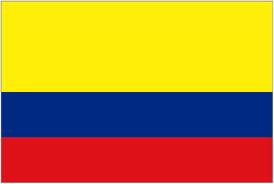 The issue of orphan works has been systematically ignored in Colombia, but it has suddenly appeared as part of draft legislation to reform to the country’s system of Copyright Collecting Societies.
The issue of orphan works has been systematically ignored in Colombia, but it has suddenly appeared as part of draft legislation to reform to the country’s system of Copyright Collecting Societies.
At the end of 2012, the Colombian Performance Rights Organization (Sayco) faced an important scandal that led to the resignation of its manager, and later to the resignation of the head of the Copyright Office. Reports on the society’s bad practices were followed by the Copyright Office’s decision in 2012 to take control of Sayco using their surveillance powers given by law. This situation was one of the main factors that led the government to promote a reform of the Colombian system of copyright royalty management.
The reform – Draft Law 202 – was presented to the Congress in 2012. It has passed two debates and will continue when the Congress starts their work on March 16th. Reviewing the last approved version, we found that this draft has a disturbing provision in Article 39:
| Artículo 39. Reparto sobre obras o prestaciones de titulares no indentificados. Las remuneraciones sobre obras. Interpretaciones o ejecuciones artísticas, o fonogramas de titulares no identificados deberán permanecer en reserva por un término que no podrá ser inferior a cinco (5) años. Transcurrido el término anterior sin que se identifique el titular, las remuneraciones correspondientes a tales obras, interpretaciones o ejecuciones artísticas, o fonogramas acrecentarán los valores a distribuir entre los socios.Parágrafo. Para que una obra, interpretación o ejecución artística o fonograma puede ser considerada como no identificada y con el fin de permitir su publicidad y lograr su plena identificación, las sociedades deberán poner a disposición por el medio más expedito a sus socios, representados y ciudadanía en general, los listados de las obras, interpretaciones o ejecuciones artísticas, o fonogramas de titulares no identificados. | Article 39. Distribution on works or other benefits when the right holder is unidentified. The remuneration for work, artistic performances, or phonograms of unidentified right holders must remain as a reserve fund for a term which shall not be less than five (5) years. After the previous term without identifying the right holder, the remuneration for such works, artistic performances, or phonograms the fund will increase the values to distributed among the partners.Paragraph. For a work, artistic performance or phonogram to be considered as not identified and with the purpose of allowing publicity and to achieve their full identification, companies must make available by the most expeditious means to its members, represented and all citizens, the listings of works, artistic performances, or phonograms of unidentified right holders. |
Article 39 will allow companies managing copyright royalties (such as Sayco) to distribute royalties collected on behalf of works by unidentified right holders after 5 years of trying unsuccessfully to locate those right holders.
The original text had stated that royalties collected for works by members of the society who could not be located after 5 years would be distributed among the rest of the members of the society. One may or may not agree with that provision, but it would have only applied to members of the same private corporate collecting society (in Colombia the collecting societies are private entities under government surveillance) and not everyone else.
The current version of Article 39 would legalize an irregular situation – the distribution of money to private partners by companies that were not supposed to collect the monies in the first place. If one cannot identify the right holder one cannot ask for permission. The collecting societies act under a mandate to collect from rightholders – but if there is no right holder they have no mandate to collect money related to a work. If the collecting societies are currently receiving money for these works – because someone inadvertently pays ignoring on good faith the orphan work situation, for example – we have to find a solution. The solution has to be public, and it has to advance the common benefit not private.
The orphan works problem is serious. Above all libraries and archives should be allowed to use and promote these works which are right now closed to the enjoyment of us all as society. If that is the intention, Colombia has to discuss and analyze options, and collective management is one of the formulas in the global debate. Some have proposed creating special funds for the promotion of cultural heritage with this money, but there are other proposals as well. It is not an easy subject because it lacks legal clarities. We know, for example, that the scandal that the Spanish SGAE faces is partly due to the management they use to do of this kind of resources and that the amounts were important. Questions remain on the current situation in Colombia – are societies collecting these types of resources? What do they do normally?
Article 39 should be left out of the draft law. The draft law as a whole includes interesting elements to improve transparency in the sector. It could be improved even more with some additional provisions: (a) by recognizing public lending of works by libraries and archives without royalties and (b) stating transparency as a principle when societies irregularly receive payments such as those related to orphan works. What to do with them is still an open debate and should not be rushed into this law without public scrutiny and participation.




